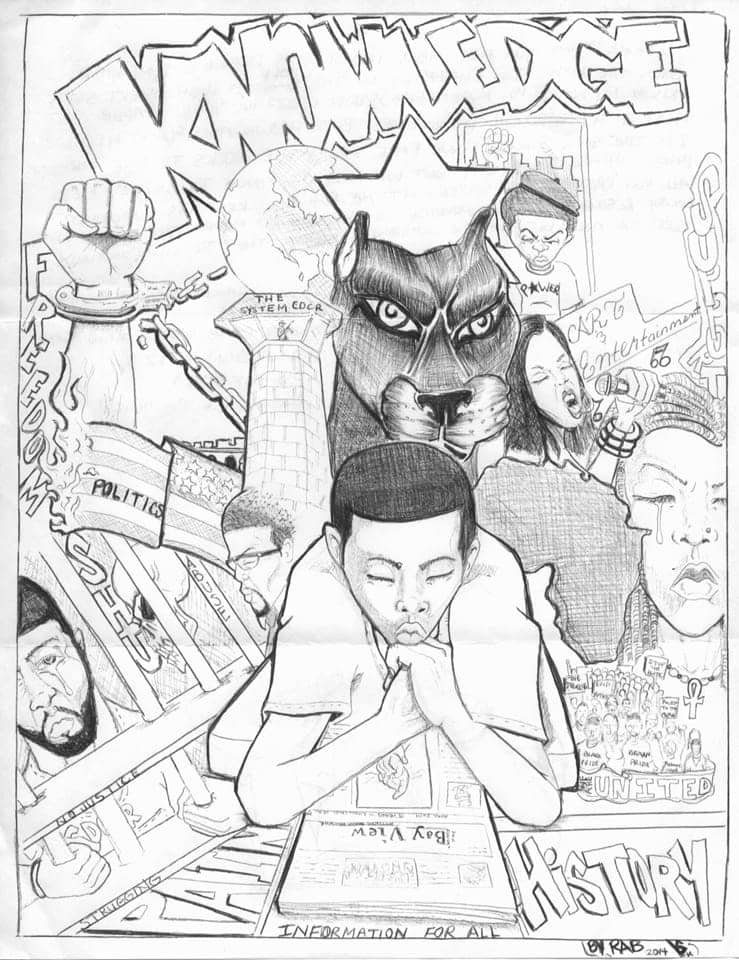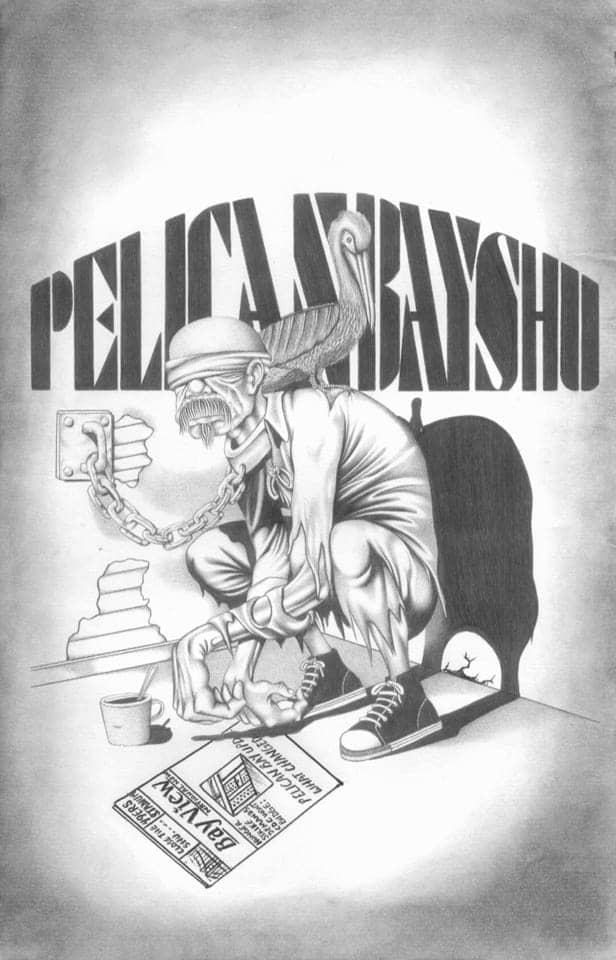by Prisoner Hunger Strike Solidarity Coalition
We need your help. Under the guise of “obscenity” regulations, CDCr has proposed sweeping new political censorship rules for mail going both into and out of the prisons. If these changes are approved, CDCr will permanently ban any documents it defines as “contraband,” including political publications and correspondence that should be protected by First Amendment constitutional rights.
The proposed regulations are designed with two main purposes: to censor writings that educate the public about what is actually occurring inside the prisons, and to stifle the intellectual and political education and organizing of prisoners themselves.
1.) Please weigh in and speak out against these regulations. The public comment period is open until 5 p.m. on June 17. Resources to help craft a letter are provided at the action page and below this alert.
2.) Spread the word on Facebook and ask your friends, family, neighbors, pastor, school class, place of worship, and organizations to write also.
If you are interested in getting involved in this battle in other ways, please email prisonerhungerstrikesolidarity@gmail.com.
In solidarity,
Prisoner Hunger Strike Solidarity Coalition
Fact sheet for CDCR proposed censorship regulation changes
CDCr states that the purpose of these censorship rules is to forbid “publications that indicate an association with groups that are oppositional to authority and society.” This ominous language reveals the political underpinnings of the proposed changes. Prison officials are attempting to increase the political, mental and emotional isolation of people in solitary confinement struggling to resist an already crushing physical isolation.
CDCr states that the purpose of these censorship rules is to forbid “publications that indicate an association with groups that are oppositional to authority and society.” Prison officials are attempting to increase the political, mental and emotional isolation of people in solitary confinement struggling to resist an already crushing physical isolation.
What are activists inside CDCr SHU torture units saying?
- “These new proposed regulations are designed to serve one purpose and that is to censor any writings, mailings and publications that educate the public to what is actually occurring in these prisons.”
- “This is an attempt to silence prisoners and publishers whose voices have been prominent in waging struggle against prisoners’ perpetual suffering. CDCR wants to stifle prisoners’ truths and disconnect them from society at large.”
- “They want to be free to pursue the maintenance of the SHU torture units and the expansion of the prison industrial complex (and the ever-growing portion of the public’s tax dollars) without the prospect of legitimate criticism and the voice of opposition.”
- “They seek to not only halt all criticism, but also the education and political development of underclass segments of their population – particularly those who are imprisoned … They seek to control all we read, see, learn or think.”
- “Allowing CDCr to censor the content of our mail would violate not only the First Amendment but also CCR Title 15, Section 3135(b): ‘Disagreement with the sender’s or receiver’s morals, values, attitudes, veracity or choice of words will not be cause for correctional staff to disallow mail. Correctional staff shall not challenge or confront the sender or receiver with such value judgments.’”
“They seek to not only halt all criticism, but also the education and political development of underclass segments of their population – particularly those who are imprisoned … They seek to control all we read, see, learn or think.”
What will the proposed changes do?
- Expand the definition of contraband: Section 3006(c)(19) expands the definition of contraband to include “written materials or photographs that indicate an association with validated Security Threat Group (STG) members or associates.” Possession of contraband is a disciplinary violation resulting in specific punishments. Also it can contribute to a prisoner being validated as a member or associate of an “STG” (a broader version of “gang validation”) which can result in placement in solitary confinement.
- Lengthy confiscation of political mail: Section 3134.1(d) as amended would result in mail delays for months, or outright denials, of any mail CDCr wants to ban. This is a blatant attempt to destroy timeliness of newspapers and personal correspondence, thus making them irrelevant. Even temporary “disallowance” can severely threaten First Amendment rights. In 2013, every month’s issue of the SF Bay View from January to June except February’s was “disallowed” at Pelican Bay State Prison and withheld until well after the hunger strike began on July 8. Those issues were packed with letters from prisoners explaining and discussing the reasons for the upcoming strike.
- Further criminalize culture and political dialogue: Section 3134.1(e) describes the nature of prohibited publications to include “STG recruitment material.” CDCr views political and historical writings and materials relating to cultural identity as “STG recruitment material.”
- Criminalize correspondence the prison does not agree with: Section 3135(c)(14) adds “written materials or photographs going into or out of the prison that indicate an association with validated STG members or associates” to a list of “Disturbing or Offensive Correspondence” which may be prohibited. This language threatens “STG validation” against anyone in possession of such materials.

Materials from organizations or individuals opposed to solitary confinement would almost certainly be considered “oppositional to authority” and thereby subject to banning. Materials from family members or other outside supporters innocently depicting persons deemed STG suspects could be targeted.
How could this affect prisoners?
- Under current state law, media may not conduct face to face interviews with prisoners unless approved by the prison. During approved tours, reporters are only permitted to speak with prisoners handpicked by officials. Prisoners are not allowed to send confidential mail to journalists about prison abuses; with these regulations, their outgoing mail can be banned altogether.
- If political publications are banned, prisoners will be cut off from nonviolent organizing efforts to improve their situation. In California, where writing from one SHU prisoner to another is punished, publications enable a prisoner suffering in silence and isolation to know he or she is not alone.
If political publications are banned, prisoners will be cut off from nonviolent organizing efforts to improve their situation. Publications enable a prisoner suffering in silence and isolation to know he or she is not alone.
How could this affect family members, activists and attorneys?
- The new, pending Security Threat Group regulations expand the net of who can be labeled as STG members or associates to include family members, activists and other outside supporters. These so-called “obscenity” regulations could expand the sheer number of items deemed contraband and create exponential ways family members (and others in correspondence with prisoners) can be deemed affiliates of STGs. This could result in mail and visiting privileges being revoked.
- These proposed regulations would also give the CDCr even more power to alienate people in solitary confinement from supportive relationships with loved ones by deeming innocent communications as “contraband” and “disallowing” them.
How could this affect newspapers and other publications?
- Any publications reporting on solitary confinement with a critical lens could be subject to political censorship and banned, ranging from publications like PHSS News, Rock, Prison Focus, SF Bay View, Abolitionist, Prison Legal News, Turning The Tide, Final Call to the New York Times, Mother Jones and The Nation. What’s “oppositional to authority” is, of course, in the mind of the censor.
- Prison-oriented publications that are banned may not survive.
Other resources
- “New proposed censorship rules mean more torture for California prisoners in solitary confinement“ by Mutope Duguma, published in the SF Bay View
- Fact Sheet prepared by Prisoner Hunger Strike Solidarity Coalition (PHSS)
- Legal Analysis prepared by PHSS
- CDCR Source Materials for “Obscenity” regulations:
Section(s): 3006, 3134.1 and 3135
Prisoner Hunger Strike Solidarity (PHSS) is a coalition based in the Bay Area made up of grassroots organizations and community members committed to amplifying the voices of and supporting the prisoners at Pelican Bay and other California prisons as they strive to win their hunger strike demands. Email prisonerhungerstrikesolidarity@gmail.com and visit http://prisonerhungerstrikesolidarity.wordpress.com/.






